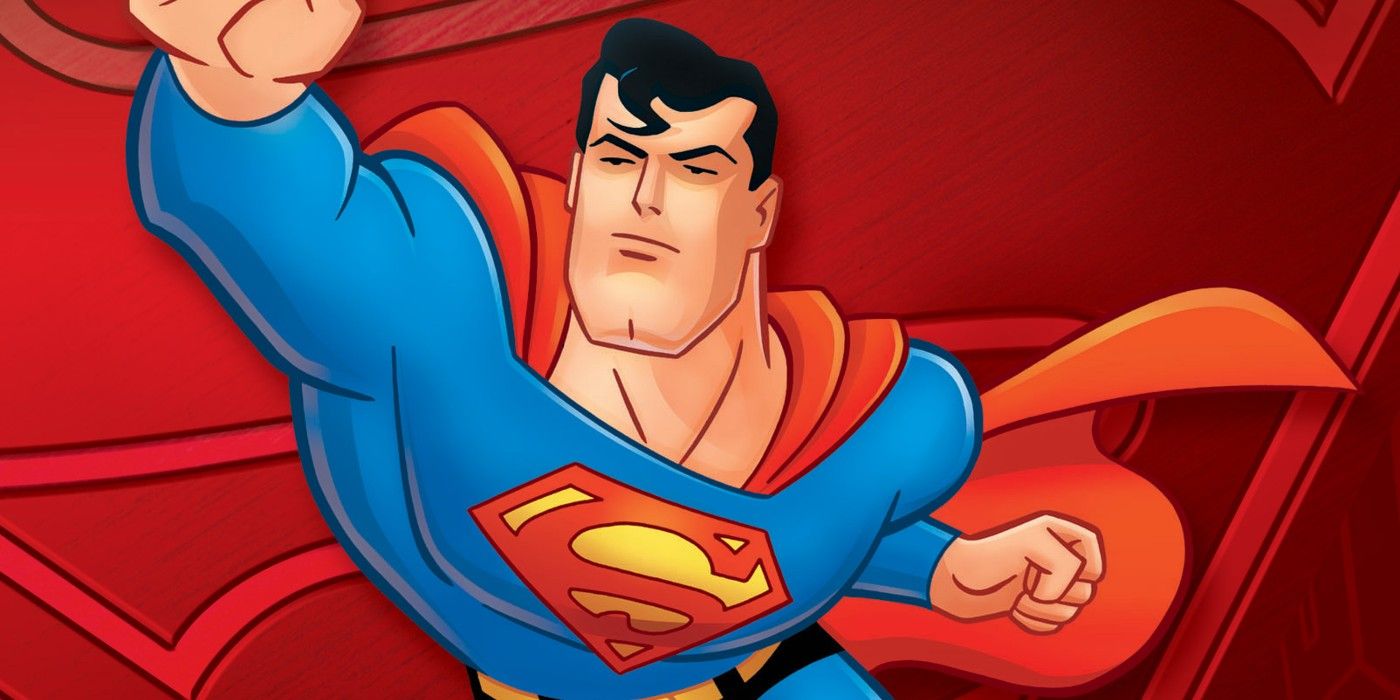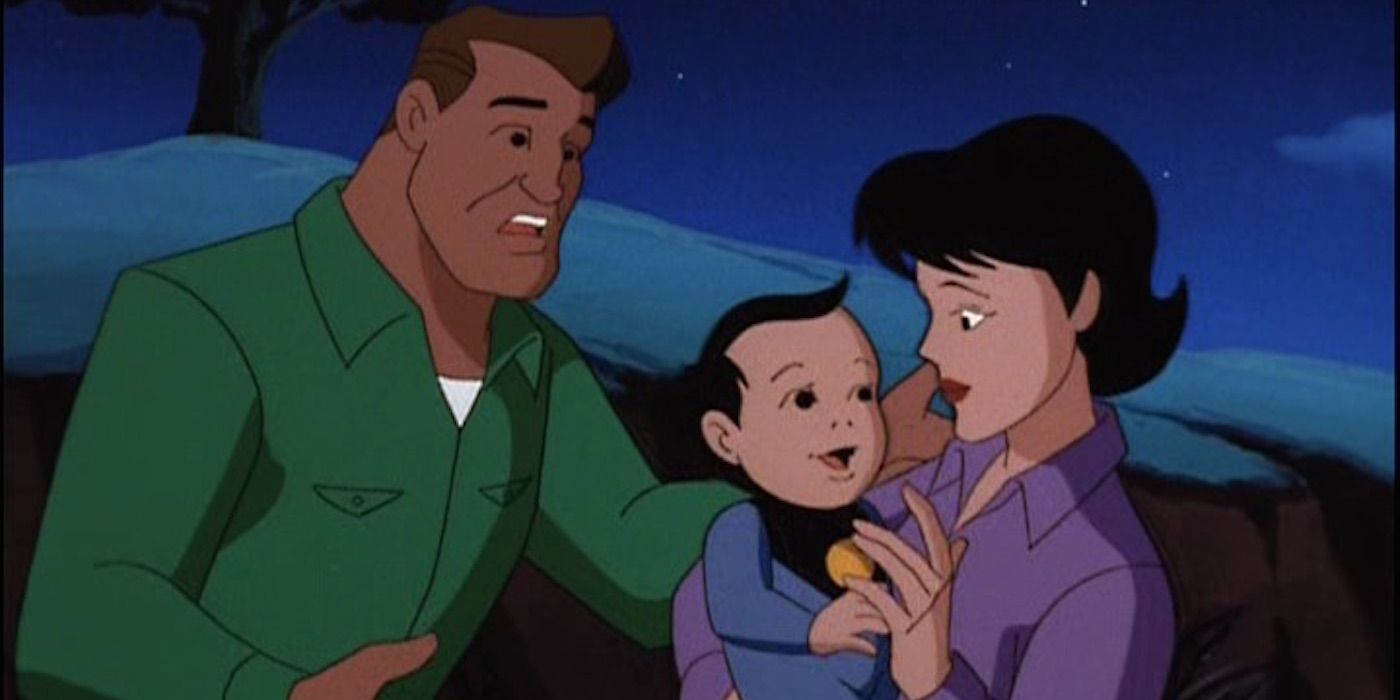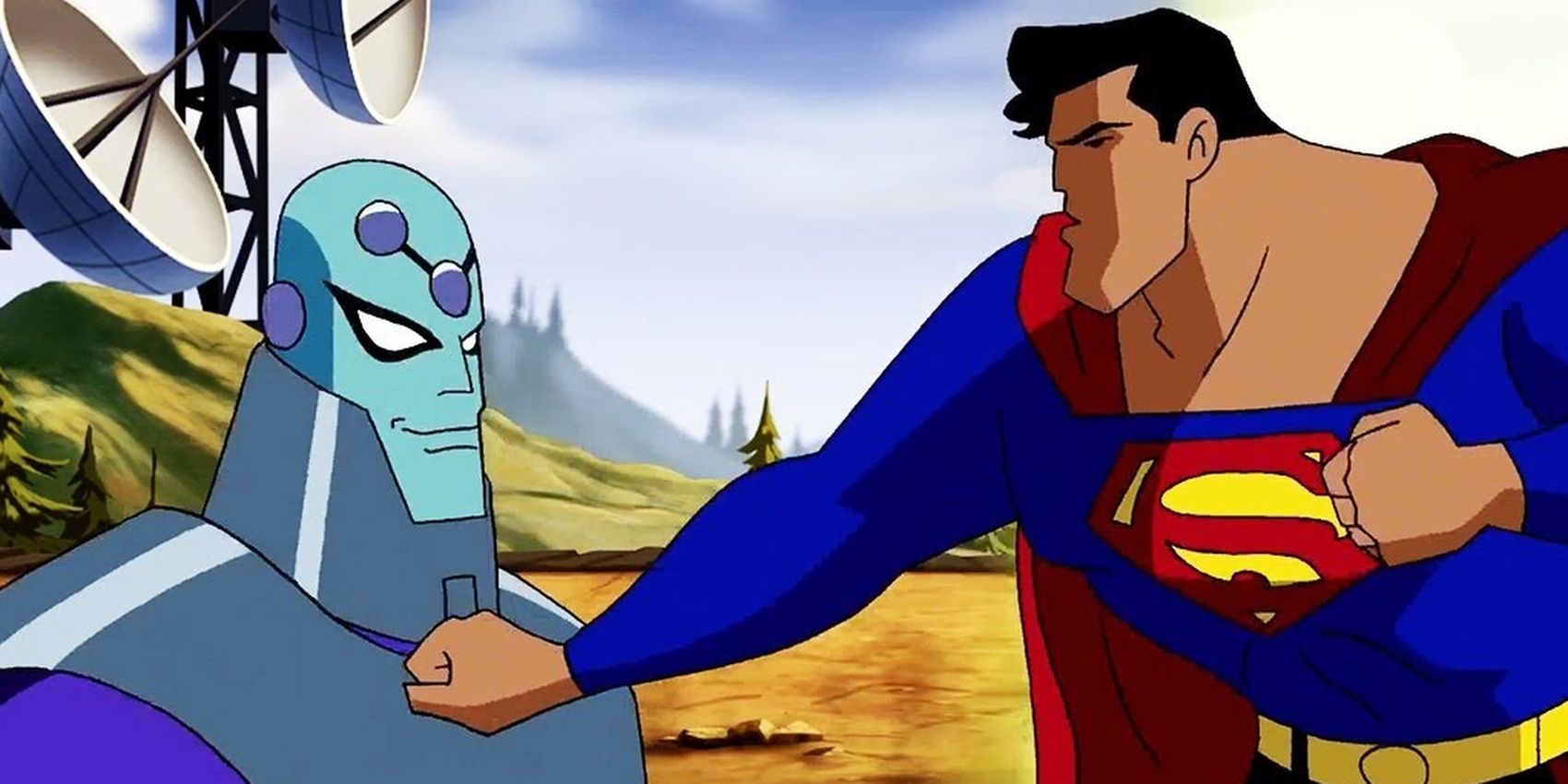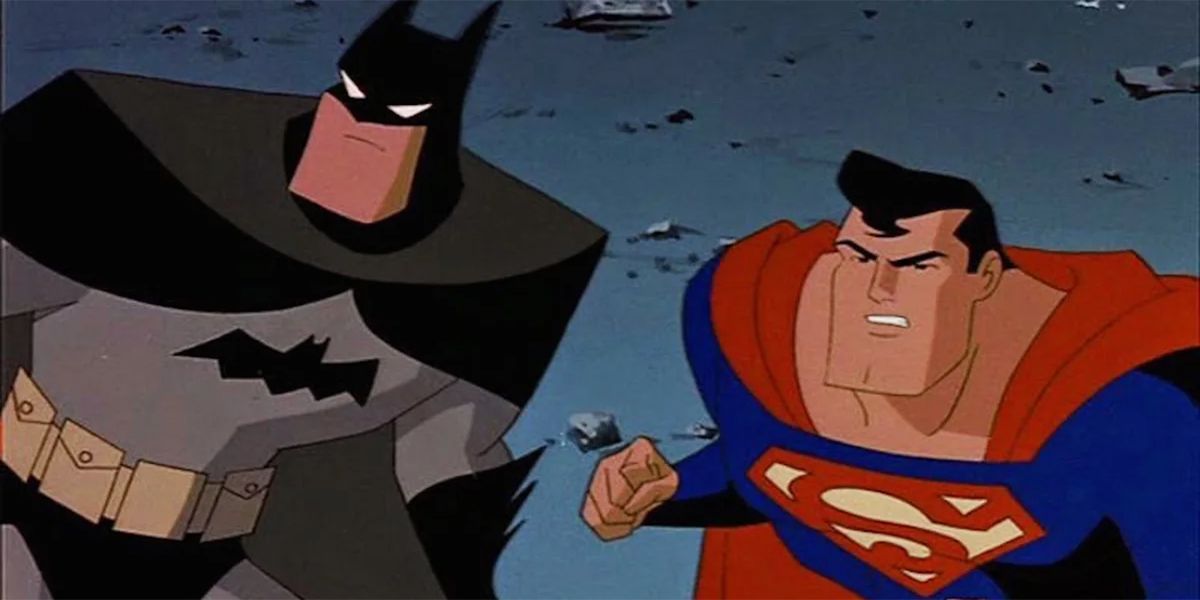With 2021 marking the 25th anniversary of Superman: The Animated Series, Warner Bros. Animation remastered the entire series into a high-definition home video release. The acclaimed series was developed for television by executive producers Bruce Timm and Alan Burnett. Following their success on Batman: The Animated Series, the duo retold Superman's history defending Metropolis in Superman: The Animated Series. Since both series shared the same continuity, Timm and Burnett ended up spearheading the DC Animated Universe.
In an exclusive interview with CBR, Timm reflected on the origins and production of Superman: The Animated Series. The creator also revealed his thoughts around creating the DC Animated Universe and discussed how his favorite moments from the fan-favorite Superman series differed from his work on Batman: The Animated Series.
Bruce, did Warner Bros. approach you to do a Superman animated series after the success of Batman: The Animated Series, or was it something you developed on your own?
Bruce Timm: No, surprisingly it was not an obvious follow-up right away. I don't think anybody said, "Hey, let's do Superman next!"
What happened was that Steven Spielberg approached Jean MacCurdy, my boss, and said, "I really like that Batman show you guys are doing! I want to do an adventure show with that crew. I want to have a meeting with those guys." So me, Alan Burnett, Paul Dini all went over to Amblin and had a meeting with Steven and he said, "I really love what you guys did on the Batman show and I don't really have an idea for what I want to do but you guys can come up with some ideas and I can pick one and we can develop it together!"
So we went back to the office and developed a bunch of pitches. We came back with all these pitches and the one that he picked was Freakazoid! -- which, at the time, was supposed to be more of an adventure show with comedy. As we were developing it, it became more of a comedy show with some adventure elements in it and, at that point, I thought it was going really heavily in the Tiny Toons arena and thought there were better people out there to produce it besides myself.
I walked away from it, with respect, but then I was left without anything to do. Fortunately, I was meeting with Jean MacCurdy about the same time for something else and she was like, "Maybe we could do a Superman show? Are you interested?" I said, "Yes! I will do that!" I had literally nothing else going on at the moment so I said, "Sure, I can start tomorrow!" [laughs]
With Batman: The Animated Series being influenced by the Max Fleischer Superman cartoons, what did you want to retain from that DNA in Superman: The Animated Series, and what did you want to leave your own fresh stamp on?
See, that's the thing. With Batman, we could borrow a lot of those Fleischerisms because they were a perfect fit for Batman -- they were almost a better fit for Batman than Superman -- because there was a lot of dark, German Expressionism in the staging in the Fleischer Superman cartoons that was totally applicable to Batman. But I also didn't want to go back to that same palette because I wanted to do something slightly different than Batman: The Animated Series. I sure didn't want to do a half-assed knock-off of the Fleischer Superman cartoons because there's a direct comparison there. With Batman, it's kind of Fleischeresque but, with a Superman show that's an intentional spinoff of the Fleischer look, I'm going to come out looking second-best.
We figured it would be better to do something fresher, so it incorporated some of the design elements from B: TAS, but also by setting it in a much less retro world, with slightly futuristic cars and more modern fashions and hairstyles, it gave it a little bit more of a timeless feel of its own that didn't look specifically tied to any one era. I think that was probably the proper way to go with it.
With B: TAS, Batman's origin was implied but never shown outright, whereas, with Superman, you showed the origin over the course of three episodes. Why did you want to show the origin and was there any pushback doing a three-parter to launch the series?
As far as I know, I don't remember that there was any pushback. The people that we worked with at Kids' WB at the time were very easygoing, much more so than Fox Kids. Fox Kids was a little more uptight about things, particularly of the Standards and Practices nature whereas we couldn't believe our luck when working at Kids' WB that first season. These guys were letting us do whatever we wanted, which was great. [laughs]
On the one hand, Superman's origin story has been told so many times but he has the best origin story. The thing about Batman's origin story is it's an incident. It's something that happened. It's not a whole episode, it's six minutes of screen time. Superman's is epic. It's got all kinds of biblical stuff in it and a huge scale. We knew it was a great way to say, right out of the gate, this is not B: TAS again, this is something really different. We're going to spend the entire first episode on another fricking planet. I just couldn't resist it. I love the origin story and getting to design Krypton from the ground up into something that didn't look like the Christopher Reeve movie or specifically like anything from the comics, was a super fun blast. All the rest of it is great too: the Smallville stuff warms the cold corners of my heart. When you get to Metropolis, you get introduced to Dana Delaney and Clancy Brown -- what's not to love?
In speaking about the origin story, this is the coldest, scariest version of Brainiac we've ever seen. What was it about redesigning him and tying him more closely to Superman's origin?
That was all Alan Burnett's idea. I give him all the props for that. At first, I was really not into the idea because I'm such a purist -- I'm one of those guys who watches a movie trailer and goes, "Spider-Man shouldn't be shooting webs out of his own body! He needs to build the web-shooters!" -- but when Alan explained it to me that [Brainaic] is basically Siri -- though, he didn't say Siri back then -- for the entire planet. He knows that Jor-El is telling the truth about the end of the world. He's got his escape plan and a bigger plan beyond that's creepy and sinister, I was all-in.
When we were doing voice auditions, Corey Burton came in to audition for everybody -- he auditioned for Superman, Luthor, and everybody else -- and I asked him to do Brainiac and he asked what I was thinking of and I told him something cold and did a version of Brainiac's voice and he went, "Oh, Vic Perrin from The Outer Limits!," which is exactly what I had in my head. So he did it and he got the job. That was the icing on the cake. God bless Corey Burton.
When working with voice and casting director Andrea Romano, what made Tim Daly, Dana Delaney, Clancy Brown, and the rest all the rest the perfect main cast?
Luck! You never know when you hire somebody, even if they had a great audition, they may not gel well together but these guys were all perfect together in the room and complemented each other really well. Tim was in the Christopher Reeve pocket of Superman more than George Reeves's version, he's younger, more idealistic, and a nice guy. He's more Clark Kent than Superman, which is good. Dana is just sharp as a tack and kind of snarky, always calling [Clark] "Smallville," it was perfect.
Clancy actually came in to audition for Superman and, before he left the studio, we had him read for Luthor and he went, "I've always got to play the bad guy..." [laughs] We already had somebody else that we loved as our Luthor at the top of our list but then Clancy opened his mouth and it was like, "Shit, that's the guy!"
As the series went on, it really leaned into Jack Kirby's contributions to the DC Universe. What was it about having Darkseid and the Fourth World play such a prominent role in the series?
It was really a matter that Superman's rogues gallery was not as visually interesting as Batman's rogues gallery, so we knew we really needed better villains.
I was always a huge Jack Kirby fan and there's a precedent that the whole Fourth World thing was introduced in the Jimmy Olsen comics first so there's a connection right there and kind of low-hanging fruit. It gave us something new to bring to the table because it hadn't really been done in any Superman animated project other than the Super Friends and it was really fun. It was great to bring in this whole other weird mythology and it expanded the scope of the type of stories we could tell. It gave a couple really great villains, including Granny Goodness played by the late, great Ed Asner, who was one of my favorites.
One of the biggest stories is "World's Finest" bringing together Batman and Superman for the first time. Was Warner Bros. wanting to bring the two shows together?
It was really more about the fact that right in the middle of our second season of Superman, the rights to Batman became available again because they had been tied up with Fox Kids. Once they became available again, Kids' WB immediately said we should make more Batman episodes, which we thought was great. Somebody had the bright idea to launch the new series by teaming him up with Superman and we all thought that sounded great and loved to do that. We might have gone a little overboard with their animosity to each other but it was a lot of fun... To the point where Batman is romancing Lois right from underneath Superman, but we already knew Kevin Conroy and Dana Delaney had great chemistry so figured why not play that card. It was all serendipity. It all kind of just happened.
You've been linked to the DC Universe for a long time, including executive producing last year's Batman: Soul of the Dragon. What is it that keeps you creatively fulfilled coming back to these characters?
One of the things that's great about the DC characters is that there are so many different ways you can take them. I am constantly amazed how flexible these characters are to the point where I can watch a Batman or Superman movie done by someone other than myself and, even though they're doing things I would never in a million years do, I don't go, "Batman would never do that!" Because which Batman are you talking about? The Adam West Batman might not do that but a Christian Bale Batman might or the Frank Miller one might. There's that broad a scope with a silly version, semi-silly version, sci-fi version, the extreme '90s angry version. If you ever get tired of doing one version, there's something else and Soul of the Dragon is the perfect example of that.
When it came to that one, we knew people would complain that we make Batman too much of a Bat-God, always the smartest guy in the room and the best fighter. So we teamed up with three guys and he's not as good a fighter as any of them. [laughs] That was the starting point and yet he's as involved in that story emotionally as he is in any other story we've done. There's an endless variety of flavors to choose from so you never get tired of them.
With this year marking the 25th anniversary of Superman: The Animated Series, how do you think it stands with the character's mythos and your own work with Warner Bros. Animation?
It's tough for me to say because I haven't actually rewatched it in a long time, but I have fond memories of it, especially specific story arcs. All of the Darkseid and Fourth World episodes I think are some of the best things we ever did with that character in any show. That, of course, bled over to what we did with Justice League. I would hope that it holds up as well as some of our other shows but it's hard for me to say!
Superman: The Animated Series is available now on Blu-ray and Digital HD.




